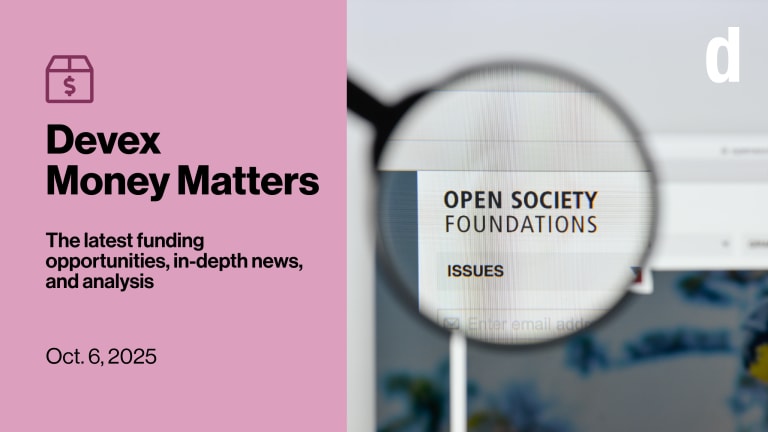As philanthropists and charitable foundations make more of a mark on development finance, development organizations are looking for clues about how to engage an emerging group of young donors in global giving.
One thing’s for certain: The next generation of philanthropists will have the resources to make a serious impact.
More than $59 trillion will pass into the hands of the next generation by 2050, and this new crop of wealthy individuals — technology entrepreneurs, heirs to family fortunes and real estate wunderkinds — will control between $20 trillion and $30 trillion in charitable giving.
Printing articles to share with others is a breach of our terms and conditions and copyright policy. Please use the sharing options on the left side of the article. Devex Pro members may share up to 10 articles per month using the Pro share tool ( ).








